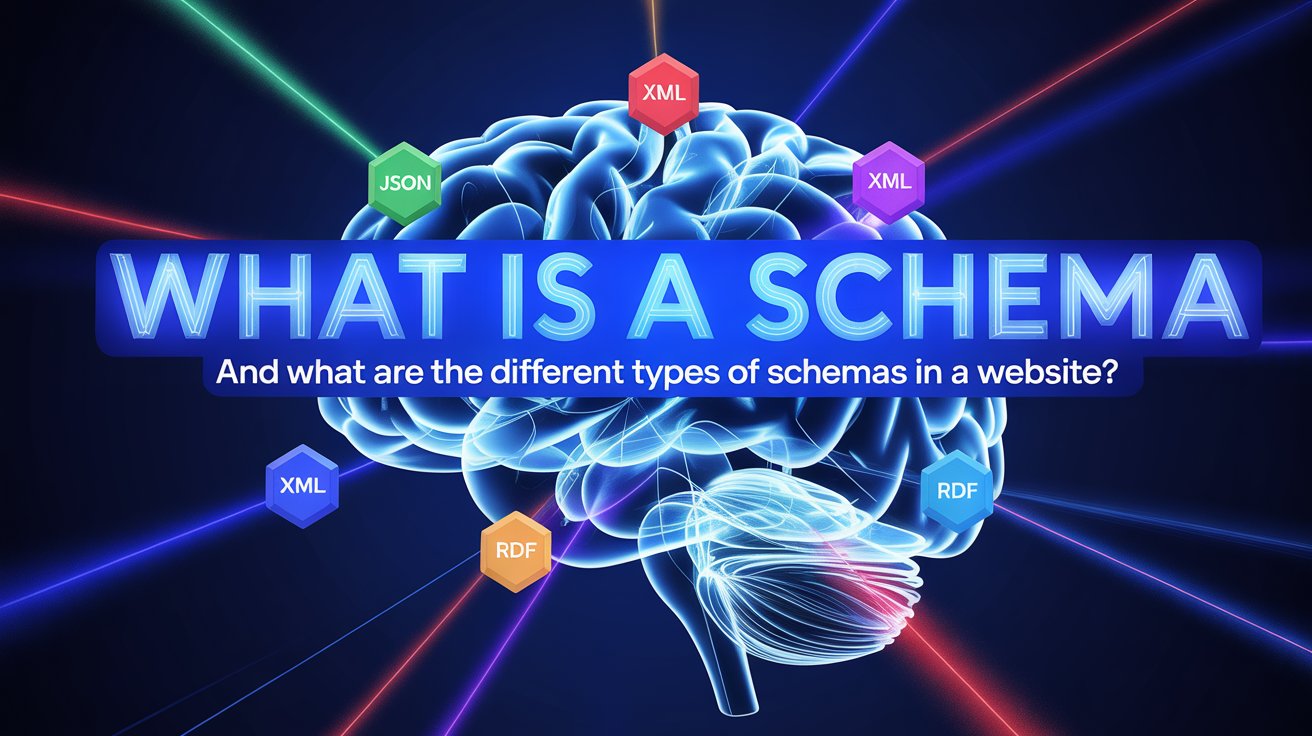A schema is a standardized way to communicate information about your website’s content to search engines. By implementing the right schema types such as Organization, Person, Event, Product, and LocalBusiness you improve your site’s visibility, enhance rich results, and provide clearer, more engaging information to users and search engines alike.
Introduction to Schema
A schema is a structured vocabulary that defines how information on a web page should be classified and labeled. At its core, a schema helps search engines understand the context of your content, which can directly improve search result presentation with rich snippets, knowledge panels, and more. From the very first paragraph, our focus keyphrase Schema sets the stage for everything that follows.
Why Schema Matters
Implementing schema on your website provides multiple benefits:
- Enhanced Visibility: Rich snippets stand out in search results, boosting click-through rates.
- Better Context: Search engines interpret your content more accurately, reducing ambiguity.
- Improved User Experience: Users get immediate answers such as ratings or event times directly on the results page.
By understanding and deploying the right schema types, we ensure our content is both search-friendly and reader-friendly.
Overview of Common Schema Types
Schema.org categorizes its 816 Types into key areas:
- Creative Works: CreativeWork, Book, Movie, MusicRecording, Recipe, TVSeries
- Embedded Non-Text Objects: AudioObject, ImageObject, VideoObject
- Event: Event, BusinessEvent, SportsEvent
- Health and Medical Types: MedicalEntity, MedicalCondition, MedicalProcedure
- Organization and People: Organization, Corporation, NGO, Person
- Places and Local Businesses: Place, LocalBusiness, Restaurant, Hotel
- Products and Offers: Product, Offer, AggregateOffer
- Reviews and Ratings: Review, AggregateRating
- Actions and Interactions: Action, ReadAction, BuyAction, SearchAction
Detailed Schema Types and JSON Examples
1. Organization Schema
Definition: Describes a company, institution, or group.
Use Cases: Corporate websites, non-profits, schools.
JSON-LD Example:
{ "@context": "https://schema.org",
"@type": "Organization",
"name": "Example Corp",
"url": "https://www.example.com",
"logo": "https://www.example.com/logo.png",
"sameAs": [
"https://www.facebook.com/example",
"https://twitter.com/example" ] }
2. Person Schema
Definition: Provides details about an individual.
Use Cases: Author bylines, speaker bios, team pages.
JSON-LD Example:
{ "@context": "https://schema.org",
"@type": "Person",
"name": "Jane Doe",
"jobTitle": "Content Strategist",
"worksFor": {
"@type": "Organization",
"name": "Example Corp" },
"url": "https://www.example.com/jane-doe" }
3. Event Schema
Definition: Describes occurrences such as concerts, webinars, and conferences.
Use Cases: Event pages, ticketing sites.
JSON-LD Example:
{ "@context": "https://schema.org",
"@type": "Event",
"name": "SEO Best Practices Webinar",
"startDate": "2025-09-15T18:00",
"endDate": "2025-09-15T19:00",
"location": {
"@type": "VirtualLocation",
"url": "https://www.example.com/webinar" },
"description": "Join us for a deep dive into SEO best practices." }
4. LocalBusiness Schema
Definition: Details for physical businesses serving local markets.
Use Cases: Restaurants, salons, local retailers.
JSON-LD Example:
{ "@context": "https://schema.org",
"@type": "LocalBusiness",
"name": "Example Coffee Shop",
"address": {
"@type": "PostalAddress",
"streetAddress": "123 Main St",
"addressLocality": "Springfield",
"addressRegion": "IL",
"postalCode": "62701" },
"telephone": "+1-555-555-1234",
"openingHours": "Mo-Fr 07:00-18:00" }
5. Product Schema
Definition: Describes products, their offers, and reviews.
Use Cases: E-commerce sites, product listings.
JSON-LD Example:
{ "@context": "https://schema.org",
"@type": "Product",
"name": "Wireless Earbuds",
"image": "https://www.example.com/earbuds.jpg",
"description": "High-quality wireless earbuds with noise cancellation.",
"sku": "EB-1000",
"offers": {
"@type": "Offer",
"priceCurrency": "USD",
"price": "59.99",
"availability": "https://schema.org/InStock" },
"aggregateRating": {
"@type": "AggregateRating",
"ratingValue": "4.5",
"reviewCount": "254" } }
Additional Schema Extensions
Extensions and Hosted Sections
Schema.org maintains Hosted Sections for specialized needs such as pending for draft terms and meta for internal vocabulary. Avoid using Attic (deprecated terms). External third-party extensions like the GS1 Web Vocabulary build on this core to cover niche domains.
Common Reasons for Layoffs
According to BBC analysis, several factors lead companies to announce wide-scale layoffs:
- Market Shifts: Reduced advertising budgets and shifting consumer behavior lower revenue streams.
- Overexpansion During Boom: Companies hired aggressively during growth periods (e.g., pandemic) and now reassess headcounts.
- Cost-Cutting Initiatives: Flattening organizational structure to reduce overhead and middle-management roles.
- Strategic Realignment: Shifting resources toward high-growth areas (AI, cloud services) while cutting legacy division.
- Macroeconomic Uncertainty: Inflation, rising interest rates, and geopolitical tensions create a cautious business environment.
Implementing Schema Effectively
- Identify Relevant Content: Map page elements (articles, products, events) to schema types.
- Use JSON-LD: Preferred by Google, embed structured data in <script> tags in the <head>.
- Validate with Testing Tools: Use Google’s Rich Results Test to ensure proper implementation.
- Keep Data Fresh: Update offers, event dates, and ratings regularly.
Final Thoughts
By integrating the right schema types such as Organization, Person, Event, LocalBusiness, and Product we enhance both user experience and search visibility. A robust schema strategy transforms plain content into rich search features, making our site more attractive to users and search engines alike. Implementing accurate structured data is essential for modern SEO success.
Note: This article leverages the comprehensive list of schema types from schema.org to ensure accurate and up-to-date information, paired with real-world reasons for layoffs drawn from BBC analyses.
Frequently Asked Questions
Q: What is the best format for Schema on a website?
We recommend JSON-LD format. It’s straightforward to add and preferred by major search engines.
Q: How many schema types should I implement?
Focus on relevant schemas for your site: Organization, Product, Event, Article, LocalBusiness, etc. Over-tagging can confuse crawlers.
Q: Can I create custom schemas?
Use schema.org extensions or define additional properties under your own namespace ensure they don’t conflict with standard types.
Q: How do I test my schema implementation?
Run your pages through Google’s Rich Results Test and Schema Markup Validator to catch errors.
Q: Does schema improve rankings directly?
While schema itself is not a ranking factor, it enhances search appearance, which can indirectly boost CTR and visibility.







.svg)
.svg)
.svg)
.svg)
